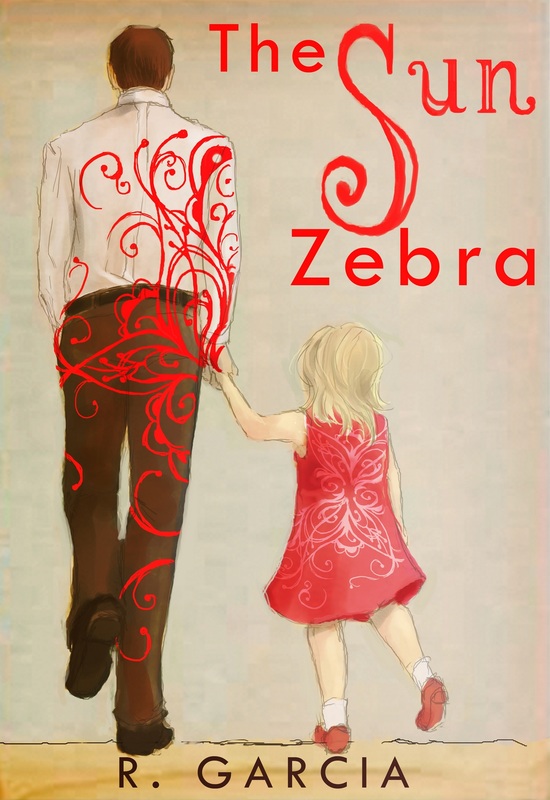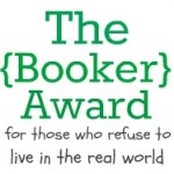|
According to a recent study released by Bowker's Pub Track Consumer Service based on 40,000 book-buying men, women, and teens, from 2010 to 2011 the leading category in e-books was fiction. This class of books accounted for 61% of unit sales, and 51% of revenue. The next few categories in terms of unit sales where: Children's Books (12%), Non-Fiction (10%), Academic/Professional (8%), Religion (5%), and Scientific/Technical/Medical (4%). In terms of revenue they were: Non-Fiction (14%), Academic/Professional (13%), Scientific/Technical/Medical (10%), Children's Books (9%), and Religion (3%).
If you look at total unit sales of books, both print and electronic, of the top 9 categories where e-books scored a significant percentage of sales, 8 were fiction. The percentages were: Science Fiction 19%, Christian Fiction 16%, General Romance and Mystery/Detective both 14%, General Fiction 12%, Espionage/Thriller and Juvenile Fiction both 9%, and Young Adult 8%. However, the non-fiction category, Literary/Classic, did nab the top spot with 20% of total book sales, but this is mostly because many works of literature that are not covered by copyright anymore are being sold electronically. So there you have it, time to write some fiction? A study recently published in the American Journal of Epidemiology may mean bad news for writers. The study analyzed the relationship between time spent sitting, physical activity, and mortality. About 50,000 women and 70,000 men participated. The subjects were free of disease at the time of enrollment in the study and their level of physical activity and time spent sitting were gauged by questionnaire. The authors of the study followed the subjects for 14 years recording a total of about 11,000 deaths in the men and 8000 deaths in the women.
The authors found that the least active of the women and men that also sat for more than 6 hours a day, were 94% and 48%, respectively, more likely to die compared to the most active women and men that also sat more than 6 hrs a day. In other words, physical activity decreases your chance of dying. However, the authors also found that, physical activity being equal, women and men that spent 6 or more hours a day sitting were 35% and 18%, respectively, more likely to die compared to those that sat for less than 3 hours a day. The cause of death that was associated the strongest with the mortality was cardiovascular disease. So like other previous studies, this study confirmed, that physical activity decreases your odds of dying. However, the novel finding is that sitting more than 6 hours a day, regardless of your level of physical activity, can increase your odds of dying compared to people with a similar level of physical activity that sit for less than 3 hours a day. In other words, time spent sitting was independently associated with total mortality. Since we writers spend a lot of time sitting down this may mean we are at increased risk of dying. But such are the risks we take for the pleasures that come with the act of creation. According to the Pew Internet and American Life Project of the Pew Research Center, the number of American adults who own an e-reader doubled in six months. From November 2010 to May 2011 e-reader ownership went from 6% to 12%. Despite this remarkable growth, the e-reader ownership is well below that of other devices like Laptops (56%), desktops (57%), and cell phones (83%). Hopefully this means there is still a lot of room for improvement!
A uniquely American fairy tale. A friend asked me why anti-cancer drugs have so many side effects. Why can't anti-cancer drugs be like, for example, antibiotics? This is a question that few scientists consider because it is so basic, but it is one that a layperson may feel curious about and the answer is very interesting.
Cancer is like a car losing its brakes. Cells normally have brakes in place that prevent them from multiplying. When cells lose these brakes they start multiplying like crazy. When bacteria infect our body they also start multiplying like crazy, but there is one key difference. Bacteria are recognized by our immune system as foreign objects and they are attacked. Cancer cells, on the other hand, are by and large ignored by our immune system because they are identified as self, not as a foreign body. And because bacteria have a physiology and a biochemistry that is very different from that of our own cells, scientist can use these extreme differences as unique targets to come up with drugs (antibiotics) designed to exclusively affect bacteria. As a result of this, antibiotics don't affect us at all most of the time. Additionally, bacteria also have to deal with the immune system. Thus, the double whammy of antibiotics and immune system normally wipes them out. In fact, many antibiotics don't kill bacteria, they just delay their growth while the immune system catches up and does the killing. Cancer cells however, are so similar to healthy cells that scientist have very few unique differences that they can exploit to come up with drugs that will only affect the cancerous cells. The difference that is most often employed is the fact that cancer cells multiply very fast while most of our cells don't. But that is the key word, "most". We do have a significant number of cell types in our body that multiply very fast: For example, in our bone marrow, in our intestines, and the cells that make our hair. This is why most anti-cancer drugs also cause damage to the body. Hence, scientists administering a cancer drug are faced with a balancing act. They must deliver a dose of the drug that is effective against the cancer, but they can't give too much or else they can cause significant toxicity to the patient. Many times the doses necessary to kill the cancer are too high for the patient to withstand, and this is especially true in the case of advanced cancers that have spread. This is why the best way to deal with cancer is to get screened and increase the chance of detecting it early. Mammograms, pap smears, prostate exams, colonoscopies and other such procedures are instrumental to this process. So you see, in these technologically advanced times the old adage "an ounce of prevention is worth a pound of cure" is still true! As many of you know I intend to self-publish my Nell stories. To this end I have been reading and listening to what others have to say about the most effective strategies to be successful in this process. But recently I have been given a piece of advice that really surprised me.
I was planning to publish my book on as many platforms as possible, Smashwords, Amazon, B&N etc. As a novice author this would have consumed a significant amount of my time learning the intricacies of formatting and publishing for each medium. But the advice I was given is the following: publish on one of the big players in the market (e.g. Amazon) and devote your efforts to promotion there, don't waste your time on the smaller outfits (e.g. Smashwords). Why would this make sense? Wouldn't it make more sense to publish in as many places as possible to get all the sales you can? The answer is "no" and the reason is the following: Consider the following scenario. I offer to buy 1000 copies of your book. I can do it in two ways. In option "A" I will buy 100 copies per month over 10 months or, in option "B" I will buy all the 1000 copies in one month. Which one would you choose? The obvious choice is "B" for the simple reason that sales increase when your book acquires more visibility, and your book acquires more visibility when it sells. In other words, if you sell 1000 copies in one month the odds are that more sales will follow because your book will climb quickly in ranking and get noticed, whereas a steady but low rate of sales may keep it under the radar screen. So the idea is to go for the spike. Make your book climb in ranking quickly and then devote all your time to do the promotion necessary to keep it there or make it go higher. This also means that making a concerted effort to combine several promotion strategies at once (say immediately after the launch of your book) would be more valuable than publishing your book and then developing its promotion piecemeal one strategy at a time. This is of course just some advice I got, but it makes sense to me. What do you think? Author John Locke has become the first Indie author to join the Kindle Million Club. This is in recognition of him having sold one million books at the Kindle store. He was able to compete successfully against established writers thanks to the platform that e-books provided him, and also thanks to his unque approach to writing and selling books. He shares his writing/publishing/marketing secrets in a recent e-book.
There are many quotes from notable writers to the effect that "writing is rewriting". Although I agree with this to a certain extent, there are many people that take this to an extreme. For these people, writing is a seemingly endless process towards perfection where the writer writes and rewrites what he/she has created going deeper and deeper into the heart of the story. Many claim this IS the way writing should be, and others claim that writers SHOULD do this out of respect for their readers. If you don't rewrite what you wrote dozens of times making it more and more perfect, then you are disrespecting your readers.
I don't get it. Let me be clear, if you are writing the next "great American novel" and you are aiming for immortality among the all time greats in literature yes, by all means rewrite your stuff a hundred times. Or if you write for a select group of demanding readers, or you can't help being a perfectionist, yes, go ahead and strive for perfection. But what if your goal is just to sell books? Let me ask you something. Suppose you write and rewrite your book making it say 80% perfect, and you sell an average of one hundred a month. Now suppose you write and rewrite your book even more making it 90% or 95% perfect and you sell the same amount. What does that tell you? The way I see it, it tells you that within this interval (80-95%) readers don't care for a 10% or 15% increase in the perfection of the book. In fact, the time that you spend writing and rewriting your first book is time that you can spend writing your second book while earning money from your first book. Why rewrite more when you can rewrite less and make money. Doesn't this make sense to you? Furthermore, by delaying the publication of your book while you make it needlessly perfect, you are denying your readers the pleasure of reading it in a way that would be perfectly acceptable to them. Doesn't this show disrespect for your reader? Why delay and impose perfection on a reader who doesn't care for it? Some people will reply that this is to "educate" them. Wow, talk about respecting your readers! And even worse, after putting so much effort into making your book needlessly perfect you may want to charge more for it. Where is the reader respect in that? Up until recently the above questions were moot as it was the publishers/editors who decided whether your work was perfect enough to be published. But with the advent of e-books, authors have been liberated from the grind of senseless writing and rewriting of their books. Authors are now free to take their work directly to the readers, and let said readers decide what level of perfection is acceptable. Of course I understand we all have personal standards, but if our goal is to sell books, then we must also be practical. However, at the same time we should understand that there will be a threshold of imperfection that no story, no matter how good, will manage to overcome. Obviously readers will balk at reading sloppily written books full of spelling mistakes, garbled grammar, and typos. I believe the maxim "writer know thy reader", should be approached from both ends. Don't overdo it, but also don't under do it either. For me, understanding this is what respect for your readers is all about. You wait for a silence, I wait for a word, lying next to your frame, girl unobserved.
You change your position, you're changing me, casting these shadows, where they shouldn't be. We're interrupted, by the heat of the sun, trying to prevent, what's already begun. You're just a body, I can smell your skin, and when I feel it, you're wearing thin. But I've got a plan. Why don't you be the artist, and make me out of clay? Why don't you be the writer, decide the words I say? Cause I'd rather pretend I'll still be there at the end. Only it's too hard to ask, won't you try to help me? Sat on your sofa, it's all broken springs, this isn't the place for, those violin strings. I try out a smile, and I aim it at you, you must have missed it, you always do. But I've got a plan. Why don't you be the artist, and make me out of clay? Why don't you be the writer, decide the words I say? Cause I'd rather pretend I'll still be there at the end. Only it's too hard to ask, won't you try to help me? You wait, I wait, casting shadows, interrupted. Why don't you be the artist, and make me out of clay? Why don't you be the writer, decide the words I say? Cause I'd rather pretend I'll still be there at the end. Only it's too hard to ask, won't you try to help me? |
I am a tinker, tailor, BlogrollLaura Novak
Barbara Alfaro Suzanne Rosenwasser Sunny Lockwood Christine Macdonald Jennie Rosenbaum Kristen Lamb Joe Konrath Sweepy Jean Ingrid Ricks The Jotter Robert David MacNeil Molly Greene The Passive Voice Third Sunday Blog Carnival Marilou George Laura Zera Jeri Walker-Bickett Lia London Categories
All
Archives
April 2020
|


 RSS Feed
RSS Feed



